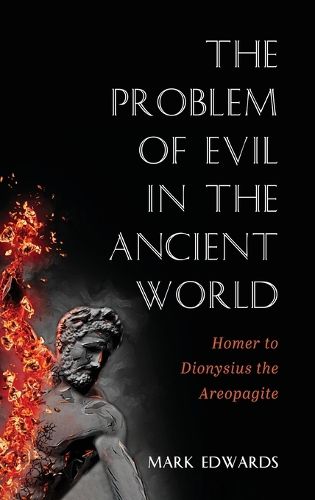Readings Newsletter
Become a Readings Member to make your shopping experience even easier.
Sign in or sign up for free!
You’re not far away from qualifying for FREE standard shipping within Australia
You’ve qualified for FREE standard shipping within Australia
The cart is loading…






This title is printed to order. This book may have been self-published. If so, we cannot guarantee the quality of the content. In the main most books will have gone through the editing process however some may not. We therefore suggest that you be aware of this before ordering this book. If in doubt check either the author or publisher’s details as we are unable to accept any returns unless they are faulty. Please contact us if you have any questions.
The aim of this book is to ascertain how ancient Greek and Latin authors, both pagan and Christian, formulated and answered what is now called the problem of evil. The survey ranges chronologically from the classical and Hellenistic eras, through the Roman era, to the end of the pagan world. Six of the twelve chapters are devoted to Christianity (including Manichaeism), as one thesis of the book is that the problem of evil takes an acute form only for Christians, since no other philosophy of antiquity posits a personal God exercising providence over individuals without having to overcome countervailing forces. None the less it will also be shown that Greek philosophies, Platonism in particular, come close to the Christian formulation. Being conscious of the affinity between Greek thought and their own, early Christians respond to the problem of evil in the same way as the philosophers, by questioning the existence of evil rather than of the divine.
$9.00 standard shipping within Australia
FREE standard shipping within Australia for orders over $100.00
Express & International shipping calculated at checkout
This title is printed to order. This book may have been self-published. If so, we cannot guarantee the quality of the content. In the main most books will have gone through the editing process however some may not. We therefore suggest that you be aware of this before ordering this book. If in doubt check either the author or publisher’s details as we are unable to accept any returns unless they are faulty. Please contact us if you have any questions.
The aim of this book is to ascertain how ancient Greek and Latin authors, both pagan and Christian, formulated and answered what is now called the problem of evil. The survey ranges chronologically from the classical and Hellenistic eras, through the Roman era, to the end of the pagan world. Six of the twelve chapters are devoted to Christianity (including Manichaeism), as one thesis of the book is that the problem of evil takes an acute form only for Christians, since no other philosophy of antiquity posits a personal God exercising providence over individuals without having to overcome countervailing forces. None the less it will also be shown that Greek philosophies, Platonism in particular, come close to the Christian formulation. Being conscious of the affinity between Greek thought and their own, early Christians respond to the problem of evil in the same way as the philosophers, by questioning the existence of evil rather than of the divine.